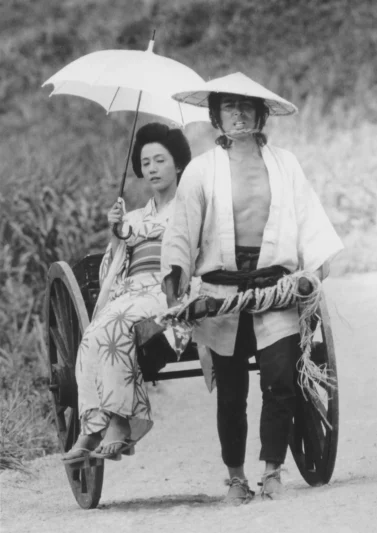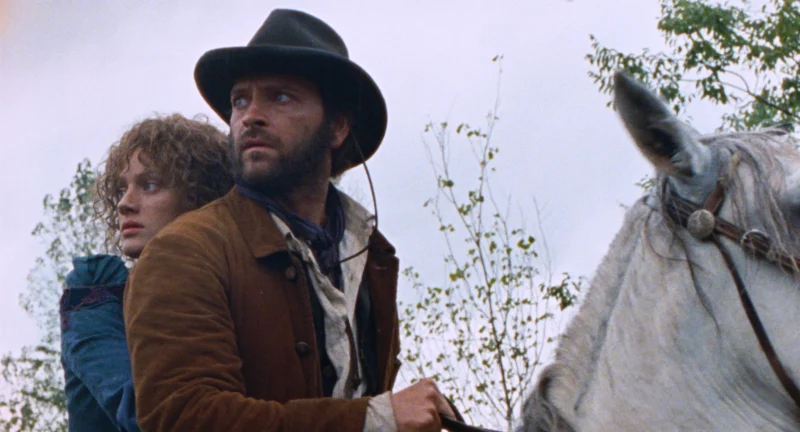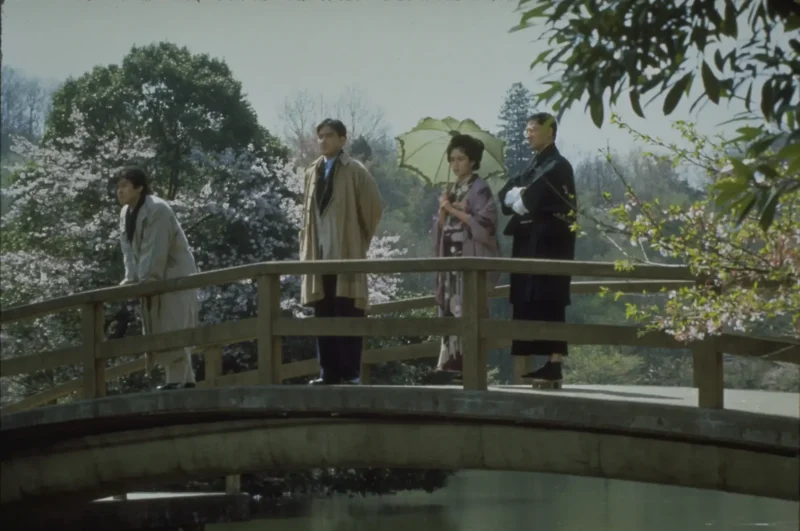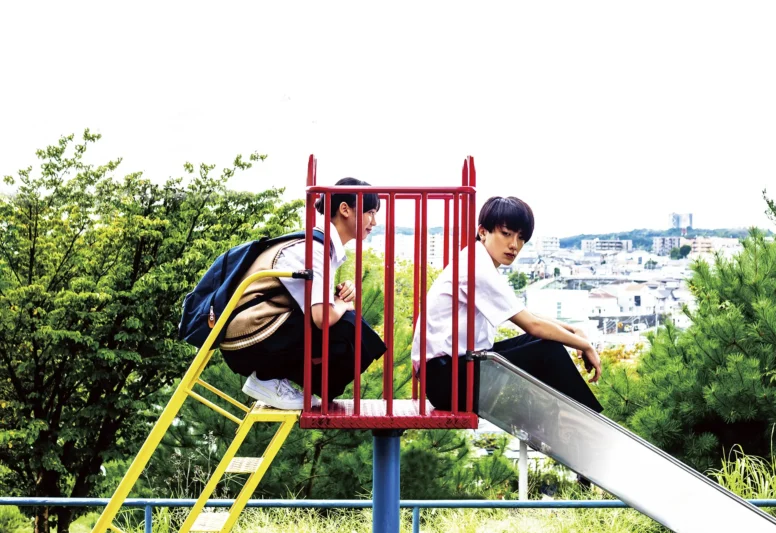Details

HITORICA FOCUS
Love buds between a woman living a world without light nor color and a man who wanders a dark world even though his eyes can see.
Early spring, 1918. One bleak evening in the mountains, blind minstrel Orin meets a big man named Heitaro in an old Amida Nyorai temple. From the next day, they start a strange journey together, staying in Jizo shrines and under the floors of forgotten temples. During a festival in Kashiwazaki, the Big Man was making and selling sandals in one corner of the temple grounds. While the Man is summoned by the local mafia for opening shop without consulting them, Orin is raped by huckster Bessho Hikosaburo in a pine forest. Witnessing it, the enraged Big Man kills Bessho with a chisel. He disappears, saying, “We will be together again, but let’s stay away for a while. I am going to Wakasa”. After a long while, Orin visits the Katate Kannondo in Wakasa and reunites with the Big Man, who is hunted as the murderer of Bessho.
Director Masahiro Shinoda
Actor Shima Iwashita, Yoshio Harada, Tomoko Naraoka, Taiji Tonoyama, Kirin Kiki, Kaoru Kobayashi, Toshiyuki Nishida
| 1977| 117min| | HYOGENSHA INC.|
- Human Drama

Masahiro Shinoda [Film Director]
Shinoda was born in 1931 in Gifu City. He joined Shochiku Ofuna Studio in 1953, later marking his debut as a director with “One-Way Ticket to Love” (1960). After “Kawaita Mizumi” (1960), he became known as the one of leaders of the Shochiku New Wave along with Nagisa Oshima and Yoshishige Yoshida. Having studied Chikamatsu Monzaemon as a student, Shinoda continued to have passionate interest in Japanese classical culture. Even after Oshima and Yoshida leaving the company, he kept on working towards new ways of expression within the studio systems. In 1964, he shot his first jidaigeki “Ansatsu” in Shochiku Kyoto Studio. After launching Hyogensha in 1967, he continued to elevate and reframe Japanese cultural mindsets and styles in his cinematic expressions through the form of historical drama. Such works include “Shinju ten no Amijima” (1969), “Gonza the Spearman” (1986) and more.
OTHER FILMS









